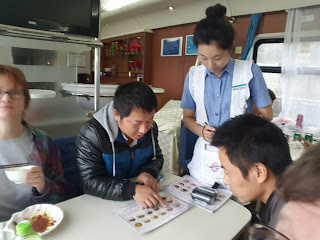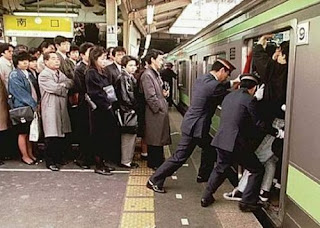The title was an unintentional He-Man reference, but I'm keeping it.
Good day, everyone and welcome to the latest edition of
WTF China! In this episode, we will learn how to pay your electric bill in Beijing.
 |
| Is there a reason that would be difficult? |
On the day we were shown into our apartment, the building manager walked us around and showed us three different meters in and around our new home. Now, my Chinese is not good (basically, nonexistent), but I believe the meters were for gas, electric and water. But one could have been our ninja repulsion meter. I really have no way of knowing.
If you didn't already know this, many people who do not live in the United States do not speak English. Not even a little bit. And while the people of America are getting more and more adamant that a person inside the borders of the States should be able to speak English, the people of other countries don't really have this debate. If you live in their country, then you need to speak the local language. It's just understood. Because of this philosophy, we have no idea what is going on most of the time.
For instance, we have these three meters in our new home. We know that we have them, but have no idea what to do with them. Will we receive a bill? Will someone be coming around to read them for us? Do we need to read them and send the information into someplace? Is there an office we need to go to?
WHAT DO WE DO WITH THESE?
We have difficulty even knowing what questions to ask because the answers seem so simple to the locals that they don't really understand the extreme depth to our level of confusion, but a few days ago something happened.
The building manager dropped by to deliver our electric card.
 |
AWESOME!!!
Now, what do we do with it? |
All we learned during his visit (through extremely convoluted translation apps on our phones) was that we needed to take care of our electricity quickly because there was not much left on our meter.
 |
| I think this is the proper place for this .gif |

After he left, I went outside to look at our meter. This is what I see. What does he mean that there isn't much left? So often, our conversations through phone translation apps are radically wrong, so I thought it must be another of the many misunderstandings we have encountered since arriving. However, we learned that it was not.
Apparently, no one ever comes by to look at your meter. You don't really even have to keep track of the numbers yourself. Sort of.
Upon taking a closer look at our meter, we noticed a small slot to the right side of the screen. Just about the right size to slide a card into it.
 |
| This is not a credit card slot as I initially thought. |
It took a lot of trial and error, but we discovered that we were to put the electric card we had received into the slot. This registers the card to the meter attached to our apartment. Talking to some Chinese locals revealed to us that we then had to take that card to a bank and put money on it. They suggested putting 500
¥ ($75) on it to begin. So the following day, I headed to the bank to begin my adventure.
 I was initially sent to the Bank of Beijing. EVERYONE told me to go there because it is the easiest place to get it done. So, that is where I went, but there was a problem. Easy for a local person who speaks Chinese is not necessarily easy for a foreigner who not only doesn't speak the language, but has no concept of their practices here. However, my ever-optimistic self dove in.
I was initially sent to the Bank of Beijing. EVERYONE told me to go there because it is the easiest place to get it done. So, that is where I went, but there was a problem. Easy for a local person who speaks Chinese is not necessarily easy for a foreigner who not only doesn't speak the language, but has no concept of their practices here. However, my ever-optimistic self dove in.
Upon arriving, I approached the person who appeared to be a "bank information" assistant-type person. He spoke no English, but seemed to understand what I wanted when I showed him my electric card and shrugged my shoulders. I shrug a lot these days.
He directed me back outside to a machine and took my card from me to insert into the machine. He then started navigating through a series of Chinese screens and eventually turned to me and pointed at the credit card slot on the machine. This excited me because we are still over a month away from receiving our first paychecks and our cash on hand is getting a little thin. I popped in my VISA card and entered in 500¥. The machine beeped and spit the card back out. It took a lot of pantomime and grunting from both of us, but I finally figured out that the machine would not take my American card.
We have learned since arriving in China that Mastercard and Visa are not nearly as universal as we have been lead to believe. The only place that has taken one of our cards here is IKEA (the Swedish furniture company). China has their own version of everything and is pretty insistent on using only their stuff.
So, I held up a handful of cash. He shook his head, pointed across the street, said
"I C B C" and walked away.
Across the street was another bank conveniently named
ICBC (I'm pretty sure that why he said that). So, I headed over to try my luck again.
At this bank, I found a similar-type person and started the same routine again. I showed my card and was directed to a machine. I tried my card again because, apparently, this bank can do something that the Bank of Beijing cannot. I got the same results as before, so I held up my cash.
She then directed me to yet another machine, punched a few buttons and it spit out a paper which she handed to me and directed me to a waiting area.
 |
My number was 110.
The 73?
That's the number of people ahead of me in line. |
I headed to the waiting area and quickly realized that I was in for a long wait. I was praying that my issue could actually be resolved after waiting in this line because I haven't
actually spoken to anyone yet.
 |
Notice the numbers.
I was going to be here for a while. |
I got comfortable and slowly watched the numbers climb. Senior citizens sitting next to me kept trying to engage me in conversation and I could only repeat the one Chinese phrase I knew.
Wǒ bù míngbái
我不明白
I don't understand.
This usually got a lot of laughter and they excitedly said something to the others sitting around them while they were all laughing at me. You know, because foreigners are funny. I get it. It's at this point that I usually do the shrug that is growing quite comfortable by now.
I soon noticed that each person conducting business at the windows required approximately 17 hours and 42 minutes to complete their transaction. I was going to be here for a while. The days passed, but they finally called my number.
I timidly approached the window, held up my card and cash and pushed them through the slot. The employee entered something on the computer, gave me a pen and paper and pointed for me to sign. I signed it and he gave me another paper and called the next person as he handed my card back.
I had no idea what I had signed and my money was now gone. Plus, I was not entirely sure that I had just accomplished what I came for, but I had this piece of paper.
 |
| Click the image for an enlarged view and tell me what it says. |
When I got home, I made a quick phone call to an expat who has lived here a while to see if there is anything else I had to do and he said I was done. Apparently, that card is tied to my meter through the national grid. When they entered the info at the bank, it automatically put the money on my account and I will have electricity until it runs out. I can look at my meter at any time to see how much money is left on it.
 |
I have 511¥ left.
Now, I just need to monitor
to figure out how long that will last. |
It was a long, frustrating day, but I can appreciate the simplicity of the system. Especially since I learned that this can be done online once we have a bank account. The electric company will never threaten you with a disconnect notice. The meter is right outside your door. If you don't keep a balance on it, the power shuts off. No customer service is even needed for this. You don't even have to set up an account or have service transferred when you move.
One utility down. Two to go. Next, I have to figure out how to pay our water and gas.


 Yeah, I do have to order off the picture menu because I'm basically illiterate. I can't order anything custom like extra pickles or no ketchup because…well, the language again. And they don't have everything on their menu that we have in the States (although they do have a lot of extra weird stuff), but the few items they have that coincide with the U.S. menu are identical in not only appearance but taste.
Yeah, I do have to order off the picture menu because I'm basically illiterate. I can't order anything custom like extra pickles or no ketchup because…well, the language again. And they don't have everything on their menu that we have in the States (although they do have a lot of extra weird stuff), but the few items they have that coincide with the U.S. menu are identical in not only appearance but taste.















































